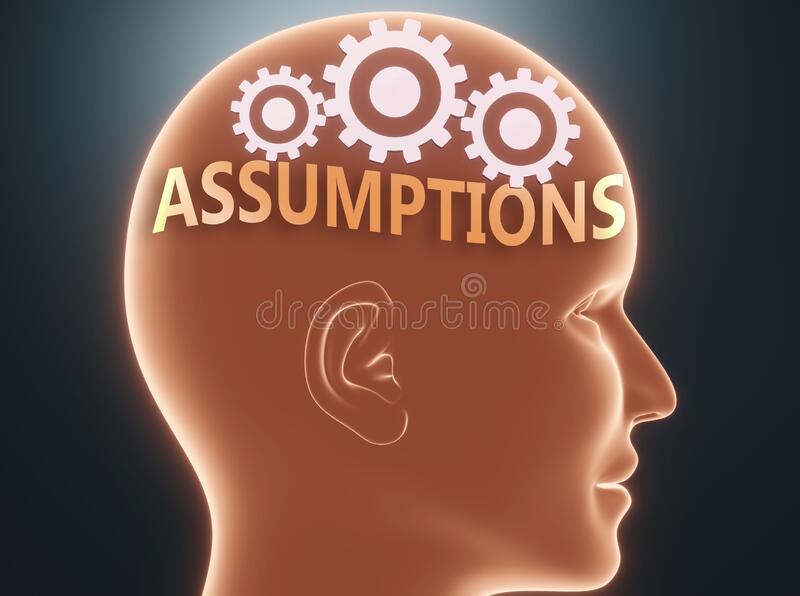PARTNERS’ DOMINATION BELIEFS LEAD TO 1) Abuse 2) Submission

Partners’ domination beliefs is the third in a seven-part series on how to empower yourself when an intimate partner abuses you. Last month, we looked at the importance of calling out abuse. Doing so leads to questions such as:
- Why does my partner act this way?
- Why does my partner believe it is okay to hurt me?
- Why does my partner hurt me when they also claim to love me?
There are many answers, but I think they all come down to partners having assumptions and beliefs that permit them to dominate and use abuse.
Domination Assumptions
During my years of work with victims and research into violence, I found Riane Eisler’s books[i] helpful in answering these questions. Eisler dedicated her life to understanding why there is so much violence in societies because her family narrowly escaped the holocaust in Germany.
I drew from Eisler’s work when I wrote the Coercive Relationships chapter, “Why Do They Believe They Can Control Us?” It delves deeply into cultural assumptions that help us recognize why some people believe they have the right to dominate. There are four basic assumptions about power that underlie all forms of violence and coercion:
- Power is finite
This belief assumes there is only so much power or success available. Therefore one has to be protective of their power. Those who buy into this feel threatened by any signs of strength, success, or different views in others. This leads them to dominate by devaluing, criticizing, and hurting emotionally or physically.
- Power comes from power over others
Therefore, they assume the only way to feel powerful is to dominate and always get what they want. They do not value mutuality or sharing power with those they relate to. If they do not get what they want, they feel like they are being controlled and that’s unacceptable to them.
- Differences are threatening
The expression of different opinions, thoughts, or feelings threatens abusive partners. Distrust of anything different, along with the previous assumptions, interferes with any efforts to discuss, negotiate, or compromise. Those who coerce do not recognize that mutual compromise and understanding add to the well-being of relationships. They believe using these results in a loss of their power.
- Some people/groups have greater worth
The first three assumptions end inevitably with partners feeling they have the right to more privileges. Others’ right are not perceived as legitimate. Instead, they see their views and desires as what is right and good. Any sign of disagreement feels bad to them, and they view it as disloyalty or not loving them.
These beliefs about power also underlie all other forms of violence and oppression, such as rape, racism, and religious persecution.
Partners’ Domination Beliefs
Looking at the assumptions that underlie coercive control helps explain why your partner behaves abusively. Sometimes they admit these beliefs, but mostly it’s their behavior that shows you what they believe. When I surveyed survivors in my therapy practice, they gave me examples of behavior that fit the beliefs outlined in this handout. Notice whether any of these remind you of your partner’s behavior.
Answering Your Questions
Recognizing your partner’s domination beliefs goes a long way in answering any why questions you might have. Beliefs are the foundation for behavior. Knowledge about their assumptions and beliefs clears confusion about how partners can say they love you while coercing and hurting you. This understanding frees you from the belief that their behavior is a reflection on you. It’s about how they view power. This also will help you recognize individuals who exhibit coercive control tendencies in the future.
Adjusting Your Behavior
When you’ve named the abuse and the beliefs underlying it and they refuse to change, it’s time for you to adjust your behavior. When you can’t trust your partner to care about your welfare, focus on protecting yourself—emotionally, physically, and financially. For example, keeping their behavior a secret is being loyal to them but not yourself. Being transparent about plans to leave does not protect you.
Examples of protective behavior:
- Talk to supportive people about what is happening.
- Make a safety plan.
- Be strategic about difficult conversations, making sure you have an exit or doing it in public places.
- Start to gather important financial and other documentation.
Being protective often feels wrong or unfair initially because it goes against respectful relationship behavior. But you’re not in a respectful relationship, so you need to adjust for that. Healthy behavior considers the potential for further abuse and what will eliminate or minimize that. You will have to do things that may at first seem unfair. Remind yourself that your partner has earned your distrust.
Coercive control affects self-esteem and self-trust. Knowing your partner’s behavior arises from what they believe about power and their entitlement to it frees you from taking personally their hurtful comments and criticism. You may find other beliefs that need adjustment. Consider these:
- I’m making a big deal out of nothing.
- I can’t make it on my own.
- I must be in a relationship to be okay.
- No one will ever love me again.
- I can’t trust myself.
- They will commit suicide if I leave.
Add any that you think hamper you.
This Cannot Be Repeated Too Much.
Supportive friends, family, or professionals helps you recover who you are. When we are not exposed to anything other than abusive partners’ domination beliefs, the healing process cannot begin.
Handout
Domination Belief System is this month’s handout. Use it to evaluate and reflect on your relationship.
[i] Some of Riane Eisler’s books:
The Chalice and the Blade: Our History, Our Future,
The Power of Partnership: Seven Relationships that Will Change Your Life,
Tomorrow’s Children: A Blueprint for Partnership Education in the 21st Century,
Nurturing Our Humanity: How Domination and Partnership Shape Our Brains, Lives, and Future.

